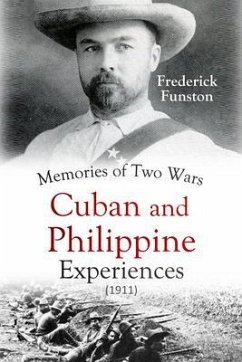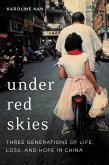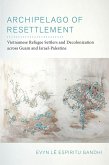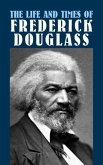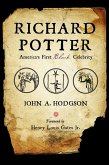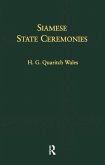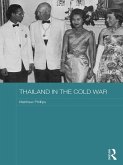"Funston has written one of the finest books of adventure that has appeared in the last decade in his 'Memories of Two Wars.'...One feels the personality of the man throughout the book and a delightful personality one is sure it is." -San Francisco Call, Feb. 18, 1912
"Reminds me a good deal of General Grant...Funston...was easily the hero and inspiring genius of the Philippines war." -Ft. Scott Herald, March 8, 1923
"His remarkable military career began with guerrilla warfare in Cuba and the Philippines....It reached a climax in a daring plot by which...he captured the Filipino guerrilla leader, Emilio Aguinaldo." -KC Times, Aug. 10, 1973
"It must be a blasé and cynical person who can finish Gen. Funston's Memories of Two Wars without a personal liking for the author...there is a warmth of feeling and genial enjoyment of the life Funston lived...has a perfectly boyish interest in everything that happens to him and in everything he does...We do not recall any volume which gives one such a respect for 'little wars' as this one." -NY Times, Jan. 21, 1912
Frederick N. Funston (1865 - 1917) of Kansas was a General in the United States Army, best known for his role in the Spanish-American War and the Philippine-American War. He received the Medal of Honor for his actions during the Philippine-American War.
He initially joined the Cuban Revolutionary Army that was fighting for independence from Spain in 1896 after having been inspired to join following a rousing speech given by Gen. Daniel E. Sickles at Madison Square Garden.
When Funston returned to the United States, he was commissioned as a colonel of the 20th Kansas Infantry in the United States Army on May 13, 1898, in the early days of the Spanish-American War. That same year, he landed in the Philippines as part of the U.S. forces that would become engaged in the Philippine-American War.
Funston was in command of Kansas troops in various engagements with Filipino nationalists. In April 1899, he took a Filipino position at Calumpit by swimming the Bagbag River, then crossing the Pampanga River under heavy fire. For his bravery, Funston was soon promoted to the rank of Brigadier General of Volunteers and awarded the Medal of Honor on February 14, 1900.
Funston played a key role in planning and executing the capture of Filipino President Emilio Aguinaldo on March 23, 1901, at Palanan. The capture of Aguinaldo made Funston a national hero. Shortly before the U.S. entry into World War I, President Woodrow Wilson favored Funston to head any American Expeditionary Force.
"Memories of Two Wars" is a narrative of the author's experiences in the Cuban insurrection before the intervention of the United States and his service in the Philippines after Spanish sovereignty terminated. They relate the incidents of the enlisting and landing of several young Americans on Cuban soil and describe the scenes of the siege of Cascorra, the fall of Guaimaro and other of the more thrilling encounters of the latter days of the struggle before the destruction of the Maine.
The Philippine campaign was done under different conditions. As a colonel of volunteers there was a long and trying period of preparation and waiting for Funston before his regiment of Kansas men went forward to occupy the new possessions of the United States. The expedition looked like an excursion with no prospect of real service at the end of the journey. But the Filipino did not want to be assimilated and had to be brought in. The capture of the leader of the insurgents was the great event and the telling of it the climax of General Funston's story of adventure as he calls it.
"Reminds me a good deal of General Grant...Funston...was easily the hero and inspiring genius of the Philippines war." -Ft. Scott Herald, March 8, 1923
"His remarkable military career began with guerrilla warfare in Cuba and the Philippines....It reached a climax in a daring plot by which...he captured the Filipino guerrilla leader, Emilio Aguinaldo." -KC Times, Aug. 10, 1973
"It must be a blasé and cynical person who can finish Gen. Funston's Memories of Two Wars without a personal liking for the author...there is a warmth of feeling and genial enjoyment of the life Funston lived...has a perfectly boyish interest in everything that happens to him and in everything he does...We do not recall any volume which gives one such a respect for 'little wars' as this one." -NY Times, Jan. 21, 1912
Frederick N. Funston (1865 - 1917) of Kansas was a General in the United States Army, best known for his role in the Spanish-American War and the Philippine-American War. He received the Medal of Honor for his actions during the Philippine-American War.
He initially joined the Cuban Revolutionary Army that was fighting for independence from Spain in 1896 after having been inspired to join following a rousing speech given by Gen. Daniel E. Sickles at Madison Square Garden.
When Funston returned to the United States, he was commissioned as a colonel of the 20th Kansas Infantry in the United States Army on May 13, 1898, in the early days of the Spanish-American War. That same year, he landed in the Philippines as part of the U.S. forces that would become engaged in the Philippine-American War.
Funston was in command of Kansas troops in various engagements with Filipino nationalists. In April 1899, he took a Filipino position at Calumpit by swimming the Bagbag River, then crossing the Pampanga River under heavy fire. For his bravery, Funston was soon promoted to the rank of Brigadier General of Volunteers and awarded the Medal of Honor on February 14, 1900.
Funston played a key role in planning and executing the capture of Filipino President Emilio Aguinaldo on March 23, 1901, at Palanan. The capture of Aguinaldo made Funston a national hero. Shortly before the U.S. entry into World War I, President Woodrow Wilson favored Funston to head any American Expeditionary Force.
"Memories of Two Wars" is a narrative of the author's experiences in the Cuban insurrection before the intervention of the United States and his service in the Philippines after Spanish sovereignty terminated. They relate the incidents of the enlisting and landing of several young Americans on Cuban soil and describe the scenes of the siege of Cascorra, the fall of Guaimaro and other of the more thrilling encounters of the latter days of the struggle before the destruction of the Maine.
The Philippine campaign was done under different conditions. As a colonel of volunteers there was a long and trying period of preparation and waiting for Funston before his regiment of Kansas men went forward to occupy the new possessions of the United States. The expedition looked like an excursion with no prospect of real service at the end of the journey. But the Filipino did not want to be assimilated and had to be brought in. The capture of the leader of the insurgents was the great event and the telling of it the climax of General Funston's story of adventure as he calls it.
Dieser Download kann aus rechtlichen Gründen nur mit Rechnungsadresse in A, D ausgeliefert werden.

